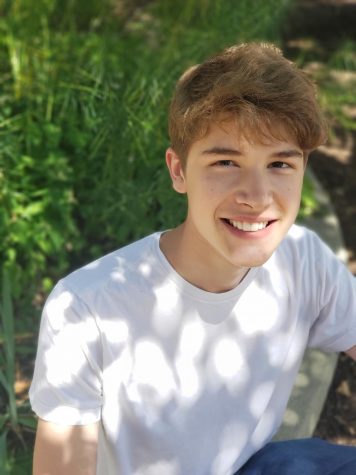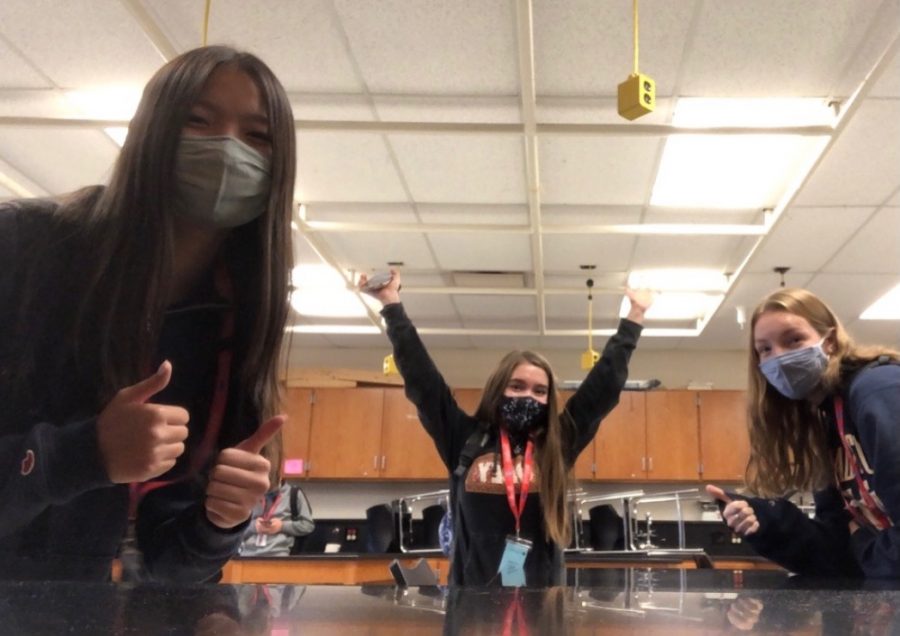Looking back at the year that changed it all
Students and teachers reflect on a COVID-filled 365 days
Tomorrow, March 13, LZHS marks a grim milestone: one year in a world flipped upside-down by COVID-19.
“It’s been the most chaotic year I’ve ever lived. But I feel like it was also necessary in a way – so much came out of it, both personally and in the world,” Tiffany Pham, senior, said. “We’ve never had to experience something like this before and it’s taking over our entire life. Every aspect of our life has shifted.”
But not all of this change was bad, Pham says. In fact, spending more time isolated from busy day-to-day life allowed Pham to have more self-reflection, she said. Instead of “just going out with my friends like usual,” Pham said she had to “spend so much time with myself, and it allowed me to get more creative in a sense. I started baking a lot like banana bread, cookies, and brownies. And I tried painting and I tried doing all these things that I usually would never do.”
With more time on their hands than ever before, students like Pham not only tried new things but also appreciated some time to themselves during the past year. Mauricio Banuelos, junior, says he benefited from some time to self-reflect on his habits and his work ethic.
“I started being more productive. I feel like being at home really made me try and make myself a better person than I was before because it gave me a lot of time with myself,” Banuelos said. “My attitude towards school was one of the biggest things. By the end of last year, I started trying a little more, putting more than just the bare minimum, and it started with putting more effort in towards school but I also started trying to eat healthily and work out very consistently for the past four months.”
All of this extra time may have provided an opportunity for personal growth, but the transition into this isolation brought difficulties, says Lisa Loeb, French teacher. Loeb says the pandemic forced a harsh shift from normal life into a new reality.
“Last March was very scary and very new. We knew how to use Canvas and everything, but then when they said we had the zoom twice a week, we were like, ‘what?'” Loeb said. “So it was very much something that we had to get used to, and some of my colleagues were very resistant to the change. I think just change in general is hard for anyone, but we got used to it and we overcame.”
Teachers and students did not just have to get used to radical shifts in education but also had to learn how to socialize during a pandemic. Just like technology has made learning from home a real possibility, Loeb says it also allows her to stay in touch with everyone in her life.
“FaceTime has been huge. My family lives in Indiana, so it’s made things much easier. We have FaceTime Fridays with my dad. And for all the holidays, Zoom has been huge,” Loeb said. “I really didn’t see my friends who are teachers here but we would get certain apps that we used to talk together on the phone and see each other’s faces and play games with each other and all that. And so it’s definitely made it a whole lot easier but it still doesn’t replace actually seeing and spending time with people.”
That lack of face-to-face interaction has not only been difficult for Loeb but her family as well, she said. Loeb says that although she has been able to spend more quality time with her family, there is still a lack of other interactions that is causing some concern.
“We’re starting to see changes in my three-year-old, with his emotions and his real desire to see friends outside of his preschool and interact with his grandparents. We’re really starting to see an emotional change in him, which is heartbreaking,” Loeb said. “It’s heartbreaking to see that in your three-year-old, you know, you wouldn’t think a three-year-old would be anything but happy, but we’re definitely starting to see those [emotional] changes in him, which is very sad.”
The pandemic has not just caused shifts in individuals, but it has also spurred collective changes in society, Banuelos says. Just like he wondered what life would be like when the pandemic first began, Banuelos says he cannot imagine what long-term changes will remain after the pandemic recedes.
“They said we were gonna have an extended spring break and stuff. And I guess I was just kind of excited for that extra week of spring break,” Banuelos said. But after going through a year of a pandemic, Banuelos says he has trouble imagining a world where there are no face masks, where there is no stress about catching a disease.
“Let’s say once everything’s back, you know, you go out and you like really start thinking about sanitation. I can’t really see myself now just going out to places without thinking about spreading germs or anything, which is kind of weird,” Banuelos said. “If I ever see a video online about a big group of people or something like that, it seems very strange to me now. Our entire social life is going to be shifted for a while.”

As a senior, this is Max’s third year on staff and first year as magazine editor in chief for the Bear Facts program. He aspires to study environmental...

